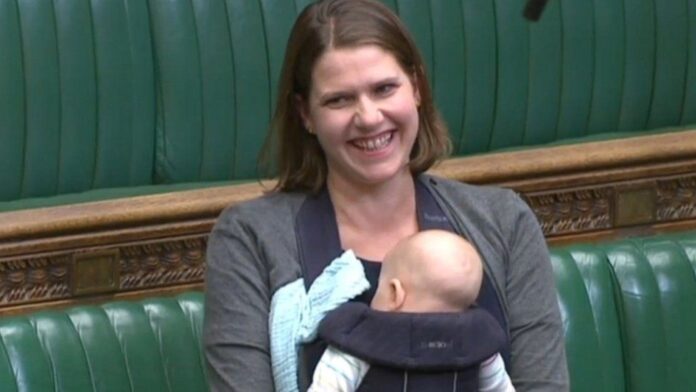According to a cross-party committee, lawmakers shouldn’t be permitted to bring their infants into the Commons chamber.
Sir Lindsay Hoyle, the Speaker of the House of Commons, requested that the Procedure Committee reconsider the regulations after Labour’s Stella Creasy was informed in November 2021 that she could not bring her infant son to the chamber.
The review came to the conclusion that the “long-standing practice” of prohibiting infants from Commons debates should continue.
However, it was said that discretion might be used, albeit “sparingly.”
Even though many of us encouraged them to do so, “this committee didn’t speak to a single individual outside of Parliament,” she claimed.
When Ms Creasy took her newborn baby to a discussion in Westminster Hall, a portion of the Houses of Parliament, in November of last year, the topic was brought up.
She claimed that she had previously brought her daughter and son into the Commons chamber.
However, after bringing her little son into Westminster Hall, she received an email from Commons officials informing her that it was against the regulations to bring children to debates.
As a result, Sir Lindsay was prompted to request that the Procedures Committee reconsider the regulations.
However, the committee came to the conclusion that if the MP in question wished to “observe, begin, speak or intervene in proceedings,” the “long-standing practice” should remain in place.
It acknowledged that MPs had taken their infants into discussions “many times” without causing a disruption, but claimed that this had “contributed to some uncertainty and a gap” between practice and the regulations.
When Jo Swinson, a former leader of the Liberal Democrats, held her son in the Commons in 2018, it is believed that she was the first MP to bring her child into the room during a discussion.
A debate on the expansion of proxy voting should be undertaken in the upcoming weeks, according to Karen Bradley, the Conservative MP who leads the Procedure Committee.
It might entail, for instance, that MPs might cast their votes even if a chronic condition prevented them from travelling to Westminster.






















